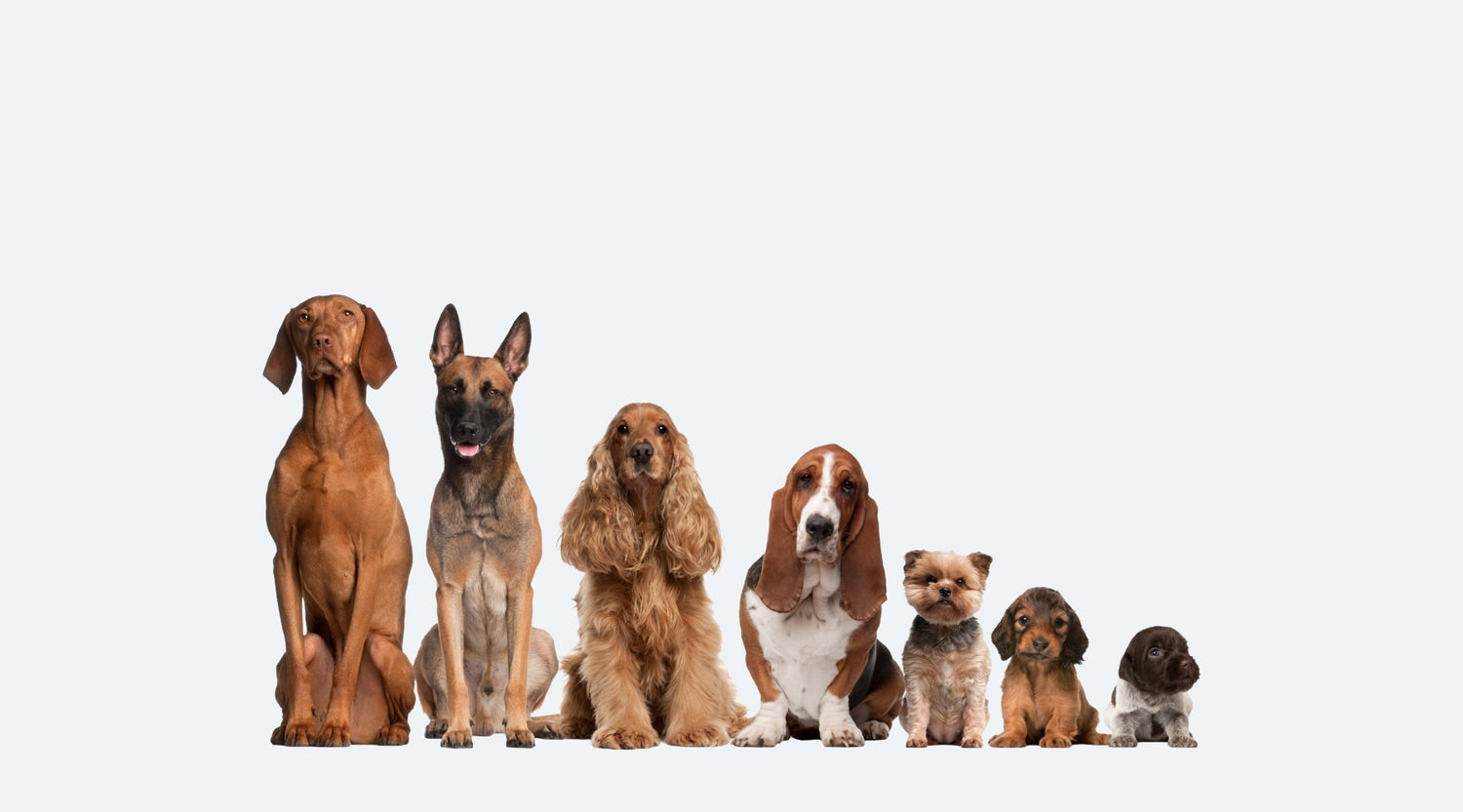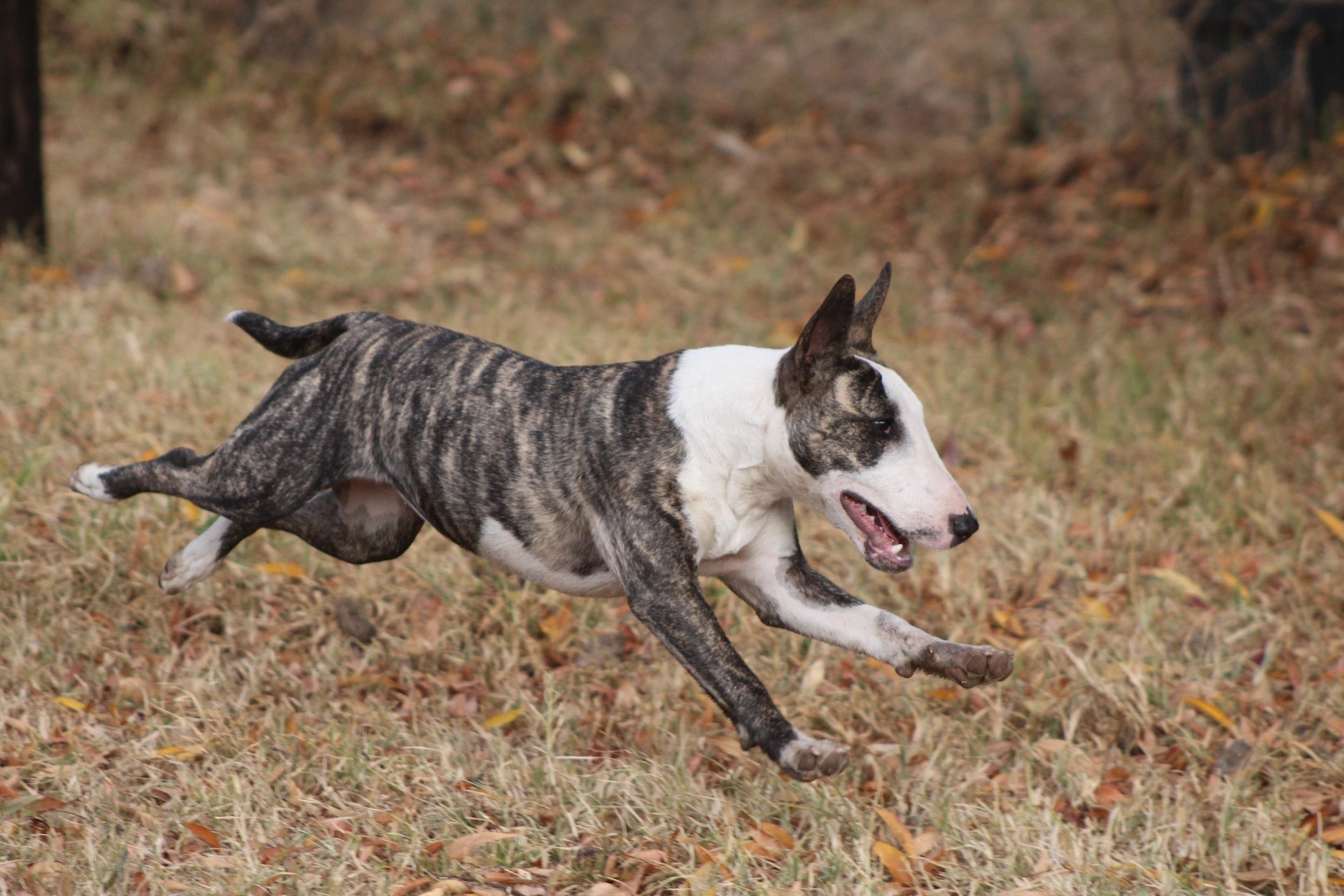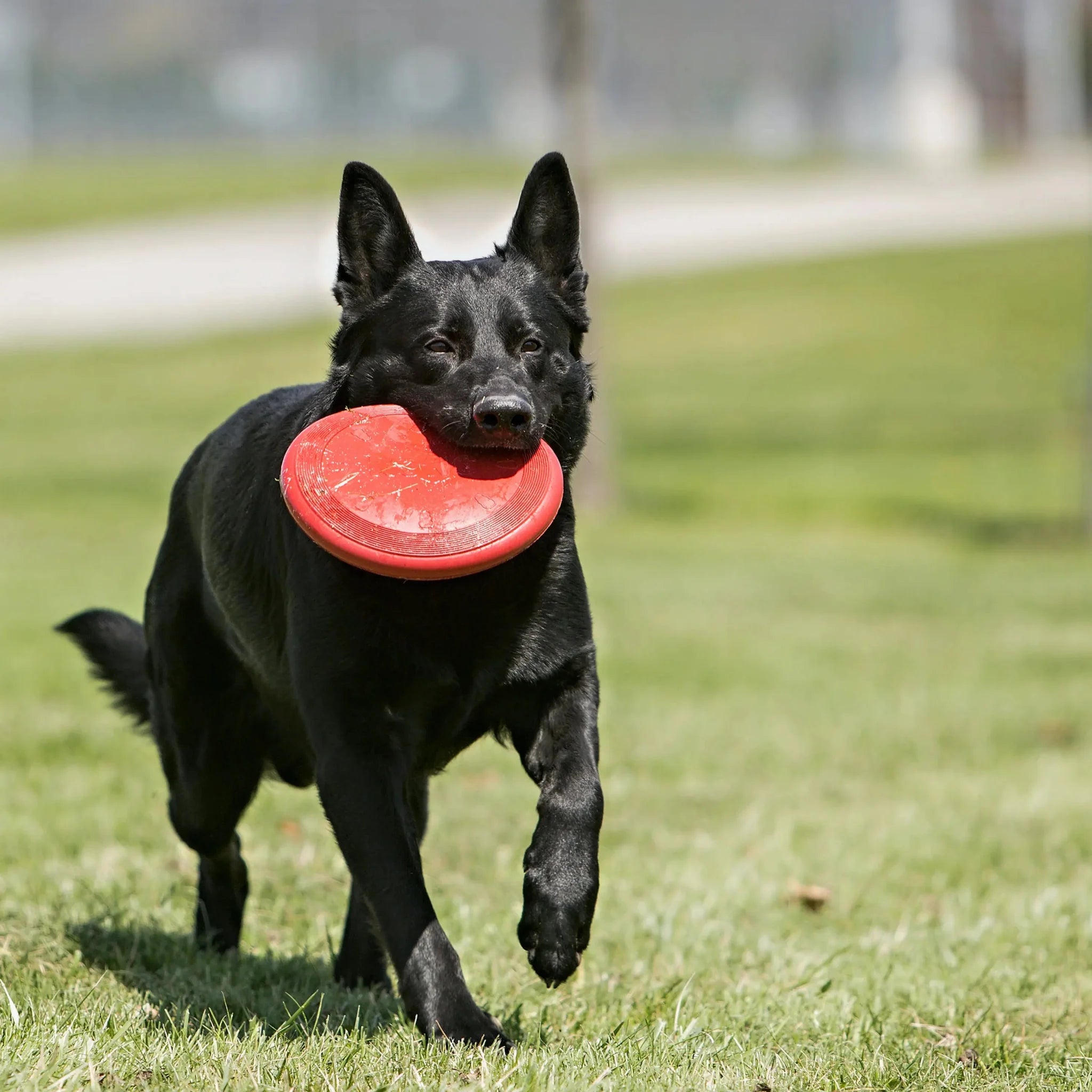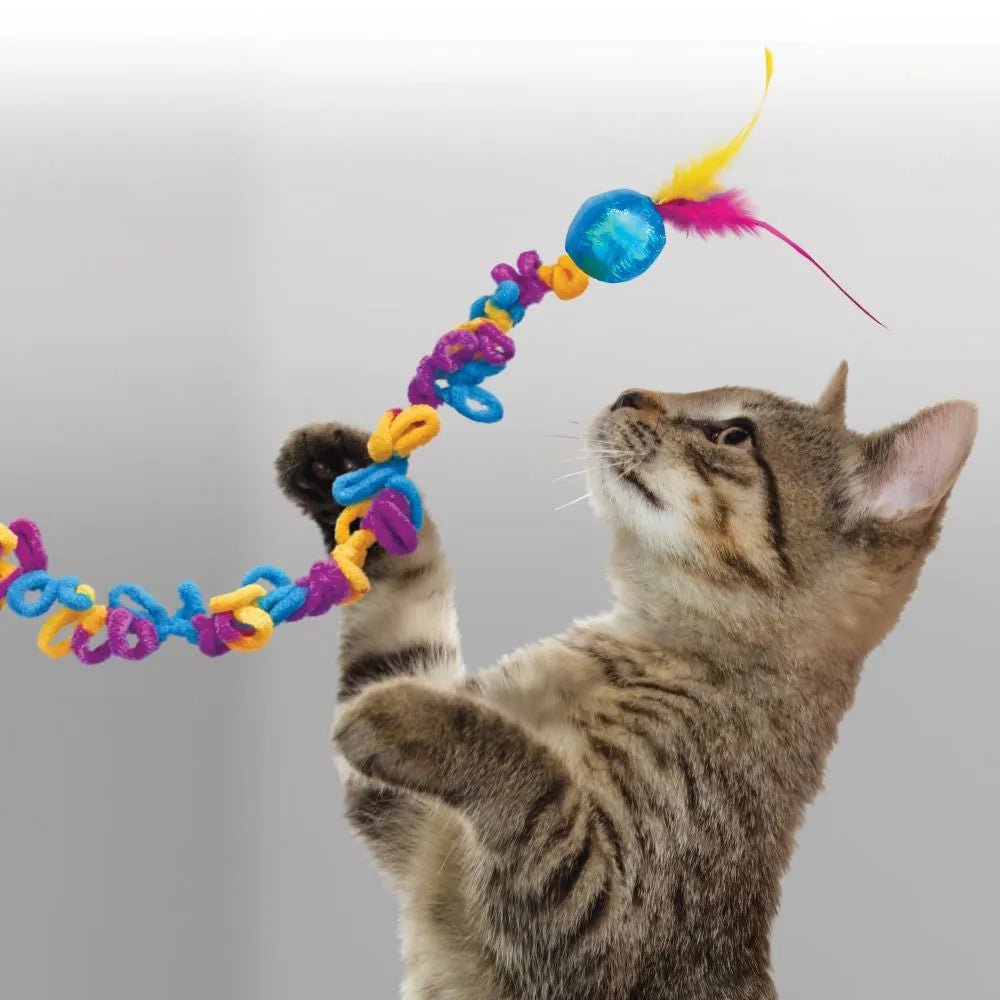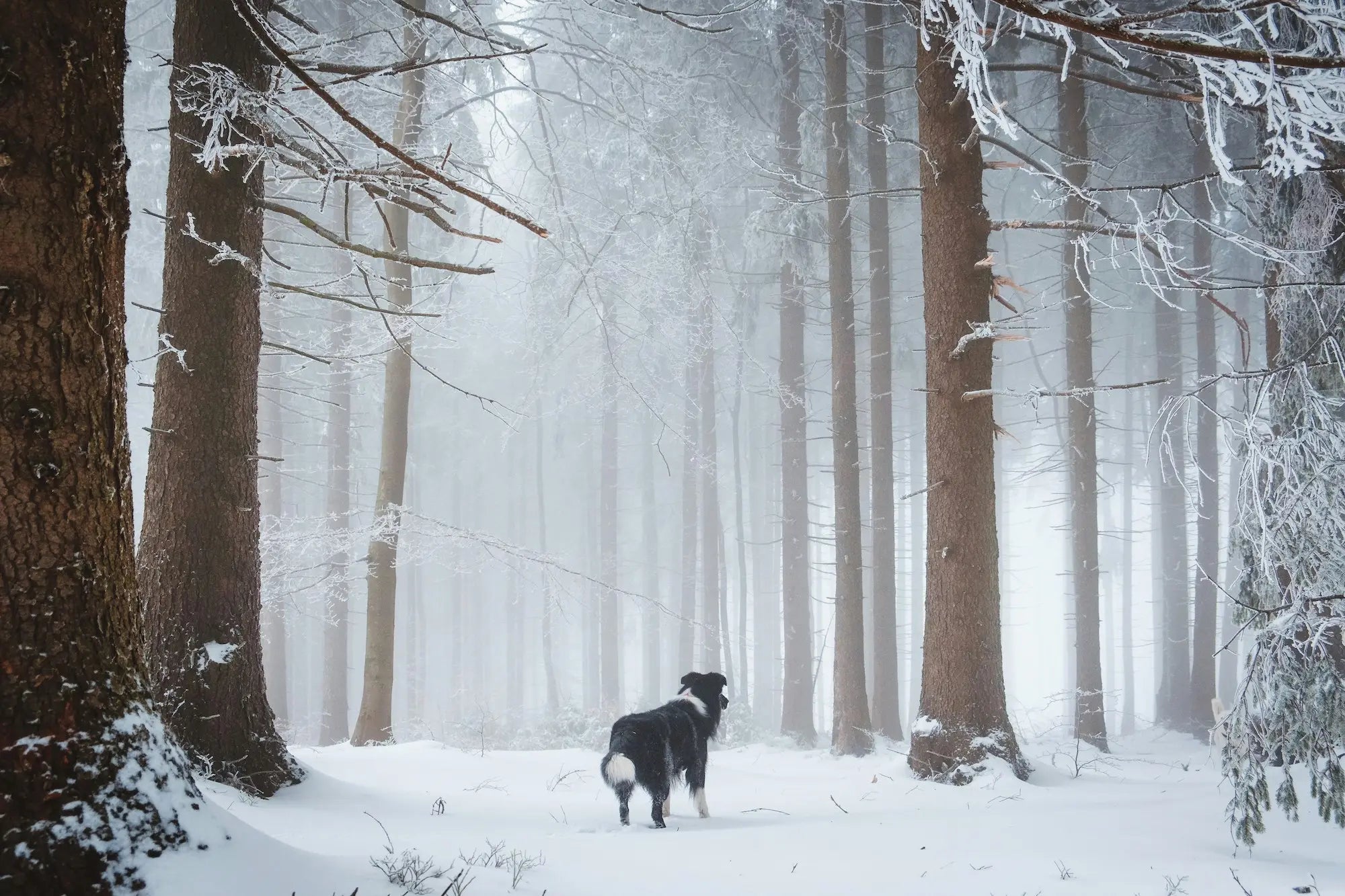The Bull Terrier is a compact, muscular, small breed of dog with a big personality. Wondering if a Bull Terrier is right for you? We explain what characterizes a Bull Terrier's personality, activity level, and health, as well as what you should consider in your daily life as a Bull Terrier owner.
race facts

Family friendly

Activity level

Fur care

Training needs

Clearing

Size
Facts about the breed
The Bull Terrier was first introduced in Birmingham, England in the 1860s. It was a man named James Hinks who possibly crossed the English Bulldog, Dalmatian and English White Terrier to create a "gentleman's companion". It quickly became popular and a status symbol to own. Today, the Bull Terrier is primarily a family and companion dog for comfort and enjoyment. Some Bull Terriers are used in dog sports and as show dogs, but this depends a lot on the dog's personality. Not recommended as a first-time dog.
There is also another breed of dog called the miniature bull terrier. This is a small variant of the bull terrier and is no more than 45.5 cm. The bull terrier is sometimes confused with the Staffordshire bull terrier, but this is a completely different breed.
What can you expect as a bull terrier owner?
Personality
Personality
The Bull Terrier is a special dog with many different personality traits. It is known for being incredibly stubborn, but at the same time kind, confident, lazy, energetic and not least funny. This is a dog that loves to entertain and be the center of attention. This means that if you get a Bull Terrier, you must appreciate and accept its great willpower and personality. Bull Terriers are very social and love people and children, but do not always get along well with other dogs or animals. Remember that dogs should never be left alone with small children.
Activity level
Activity level
Bull terriers are well suited to urban environments as they do not need a lot of space or hours of exercise daily. However, they do need enough exercise, such as an hour's walk during the day, in addition to morning and evening walks. Mental stimulation is also very important for the bull terrier.
Training
Training
Known for being stubborn, extra patience is needed with a bull terrier. Especially when it is a puppy and young! The word "patience test" is often used by bull terrier owners. Some bull terriers find obedience training fun, while most prefer to push the limits. This is not to be mean, but is in their nature. Therefore, they are not recommended as a first-time dog. It is also extra important to socialize a bull terrier from a young age, as they do not always get along with other dogs and animals. Be consistent and show that you are more patient than they are. Positive reinforcement is important, as with all other dog breeds.
Health
Health
Weight and size
Bull terriers have no restrictions on weight or height, but will usually be between 45 - 55 cm tall and weigh between 20 - 35 kg as adults.
Lifespan
10 - 14 years
Hereditary diseases
It is common for some dog breeds to be more susceptible to hereditary diseases than others. Of the hereditary diseases, bull terriers may be more prone to kidney disease , heart defects and skin problems such as eczema. If the bull terrier is completely white, they may also have problems with deafness .
Additionally, these fearless and energetic dogs tend to get themselves into unfortunate situations and are at greater risk of physical injuries, leading to trips to the vet for surgery to remove foreign objects from their intestines or treatment for broken bones.
Fur
Fur
Bull terriers were bred to be completely white, but are found with spots on their heads or bodies in other colors such as black, red, brown or tricolor with white accents. The coat is short, incredibly easy to care for and does not shed much, but the short coat makes it stick to textiles extra well. Needs a blanket ordog clothes in the winter.
Food and nutrition
Food and nutrition
When choosing food for a bull terrier, you should choose a type of food that is adapted to the dog's health and lifestyle.
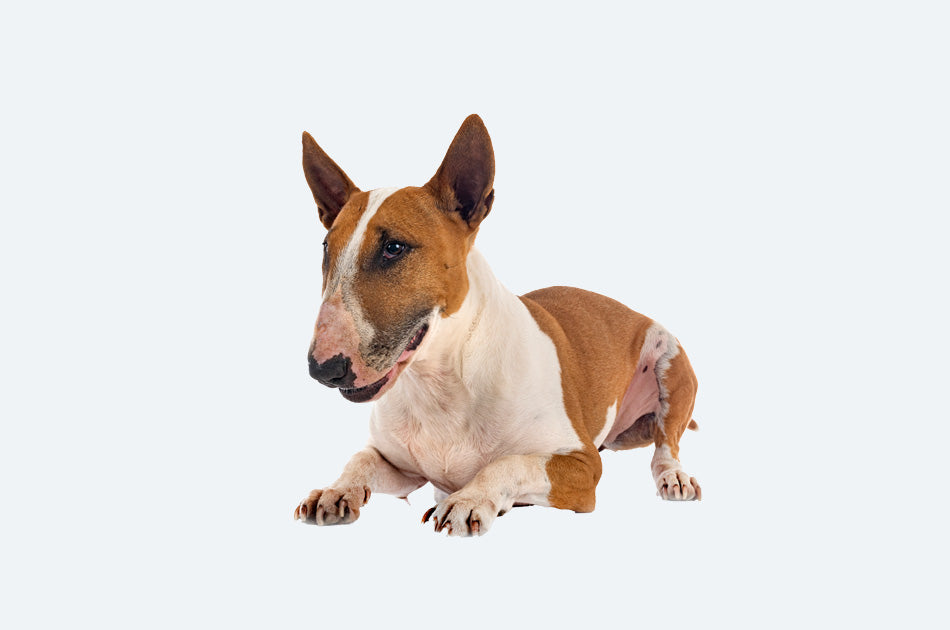
Bull Terrier
If you want to own a bull terrier, you should make sure to find a reputable breeder. How much a bull terrier costs will vary, but you can expect a price for a bull terrier to be around 15,000 to 25,000 kr.
It is important to choose a seller who provides you with information about how the dog was bred to ensure that you are not contributing to uncontrolled or illegal dog trade. Unfortunately, not everyone breeds properly and properly, which can lead to serious diseases in the puppies. Being well prepared and finding a reliable breeder is therefore in the best interest of both you and your dog.
